Pupak Hagighi defines herself as an artist, activist, writer, and earth healer, among others. In this interview, Pupak talks about her personal journey and its connection with making soil, rewilding, decolonising and healing on different levels.
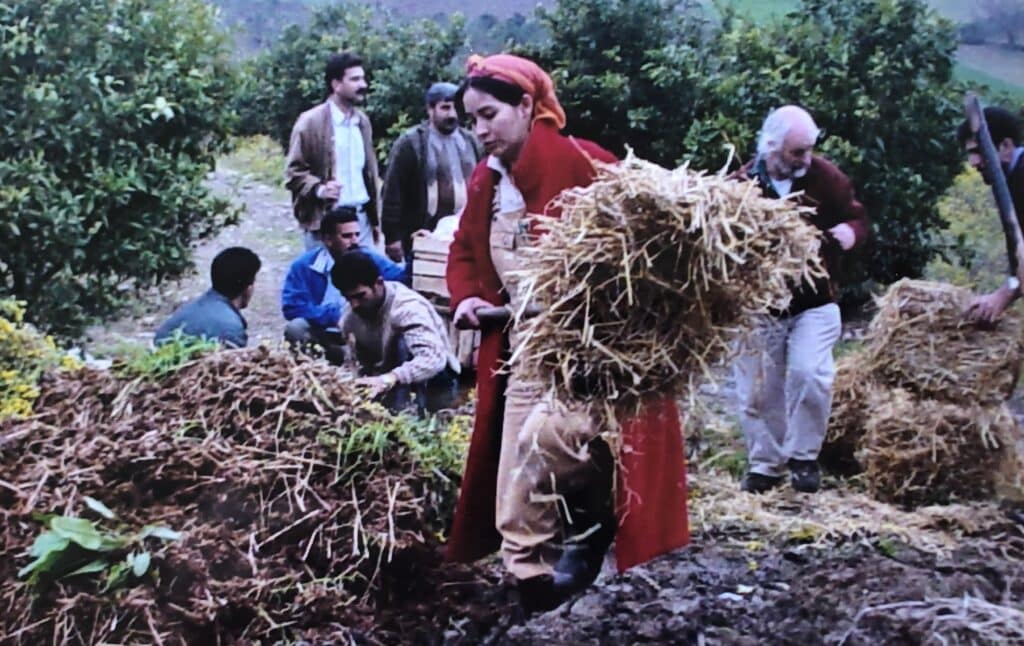
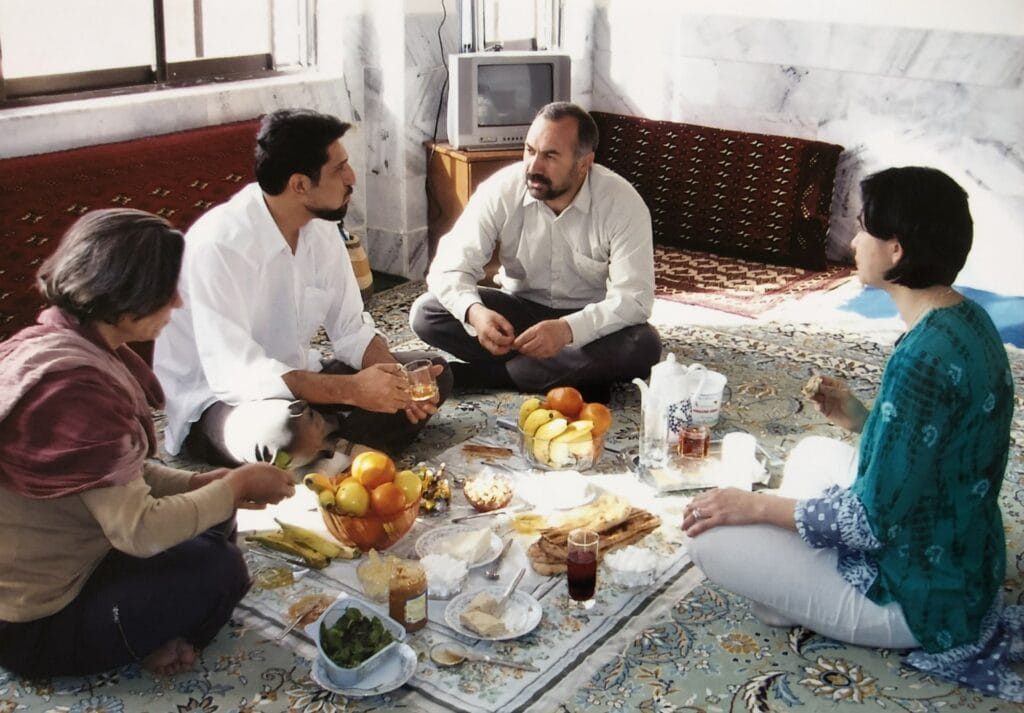
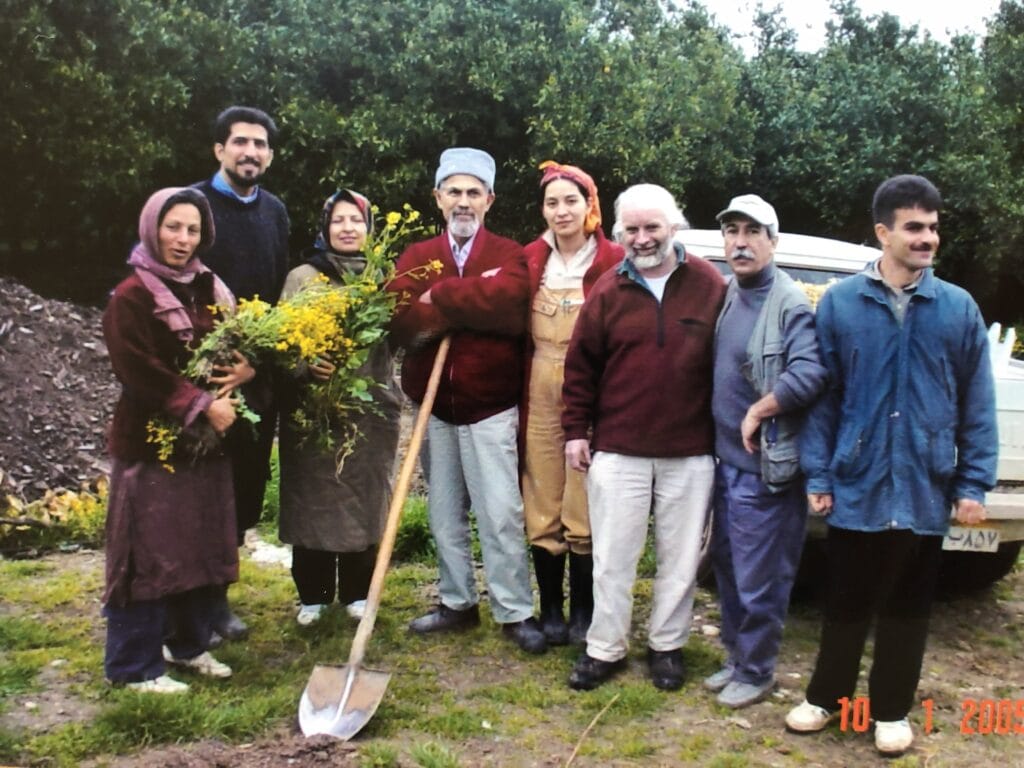
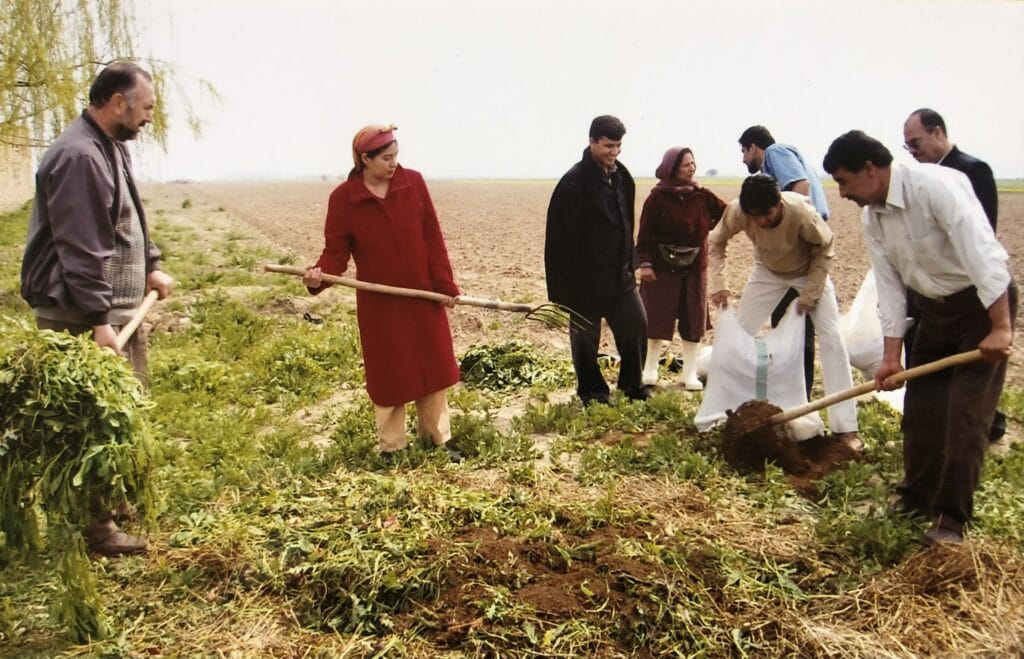
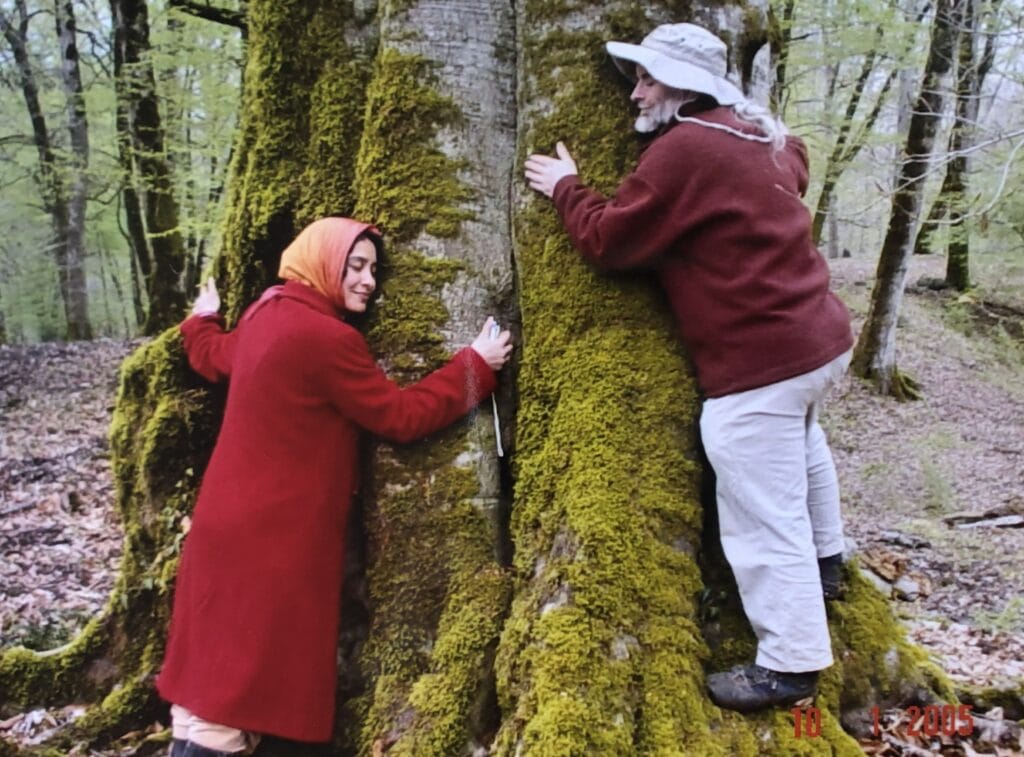
- Pupak Haghighi facilitating a compost workshop. Srping 2005, Northern Iran/ 2. One of the first meetings related to Trees For Hope. Soring 2004, Northern Iran/ 3. Compost workshop. Spring 2005, Northern Iran/ 4. Pupak Haghighi facilitating a compost workshop. Srping 2005, Northern Iran/ 5. Pupak Haghighi and Alan Featherstone in their first trip for Trees for Hope, Srping 2005, Northern Iran
I met Pupak on a Saturday morning. I had attended a Working Party which takes place the last weekend of every month at the edible woodland gardens, as part of the Hinterland Trust Conservation mission. It was the first time I went there since I started living in Findhorn, this ecovillage in the North-East of Scotland from where I’m writing these words right now.
I did not know what she dedicated her time to back then, but somehow I got an immediate intuition she could be part of my project. My admiration radar was on when noticing her gardening focalising skills, and I remember the beautiful words she said to me after our collective work was done: “It’s really good that you’re going to be here for a year, because this way you’ll be able to observe how the blackberries grow in the Spring”. Her words moved me and made me feel very lucky to be there.
After that first encounter, I knew I wanted to know more about her. I didn’t really have to do much for that desire to get into motion very soon. At an online meeting with the GEN Communications Director, Gabriel Siquieira (Brazil) some days later, when sharing with him about my Master Thesis’ ideas, he mentioned her name. Apparently, some years ago, when he started working for GEN International, he interviewed her but never uploaded that material, which is possibly lost in his digital ocean of documents. However, he clearly remembered being inspired by the conversation and was suggesting I reach out to Pupak, as he was aware she lived in Findhorn.
Next time I saw her was at the Taize Singing that takes place in the ecovillage weekly. After the morning singing in the Community Chamber, I approached her with an interview proposal and she encouraged me to send her an email with more details.
It was actually then -once she replied to me with some information about her- that I found out she was deeply involved with rewilding, among many other things that seemed very relevant for what I consider ‘healing the Earth’: from compost making workshops to ecovillage design trainings or other kinds of arts and activism that go further beyond planting trees.
Before our interview date took place, I attended one of the fire rituals she normally holds in what we call ‘the Earthlodge’. That night I was part of a circle of women where a sharing took place. Burning papers- in which what we did not want to keep dealing with was written- felt to me like a really powerful and revealing way to see individual and collective change just a day before I traveled to COP26. I was encouraged to start a fire journal and so I did.
On my way back, Pupak and I finally met for that interview, which was very gratifying. I went to her place, a beautiful house inside the ecovillage, next to the Arts Center. Before we went for it, she invited me to a cup of tea and we were able to share a very calm chat, getting to know more about each other.
As soon as the camera was on-and even before-, inspiration was on the cards. Although every second of this conversation is really worth it, its second part appeared really substantial to me. Listening to Pupak’s insights on decolonisation was totally revealing for my research. To Pupak, “we’ve destroyed the land because we’ve ignored ourselves”. This means rewilding and decolonising “go together” , and this latter process can allow us to “access our deeper power and have an intention to give back” in a very transformative way.
She relates decolonising with “meeting your opponent freshly, as a human” and openly talks about this as “a very important encounter” thanks to which “the world presents to you in a new way”, based on her personal experience.
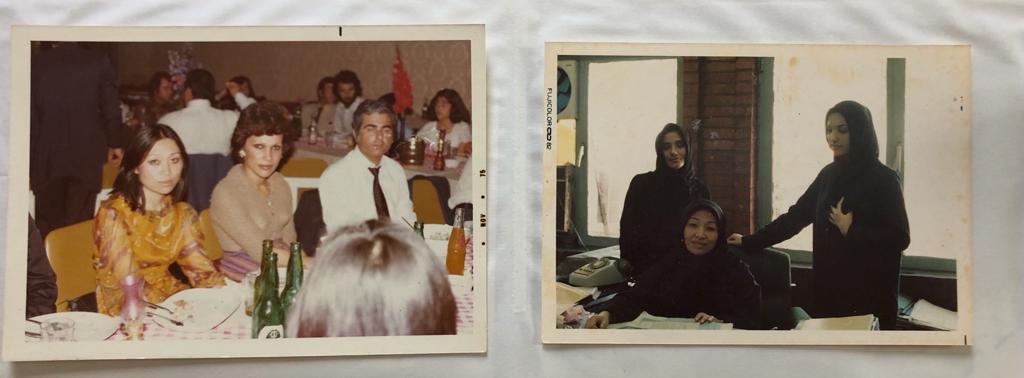
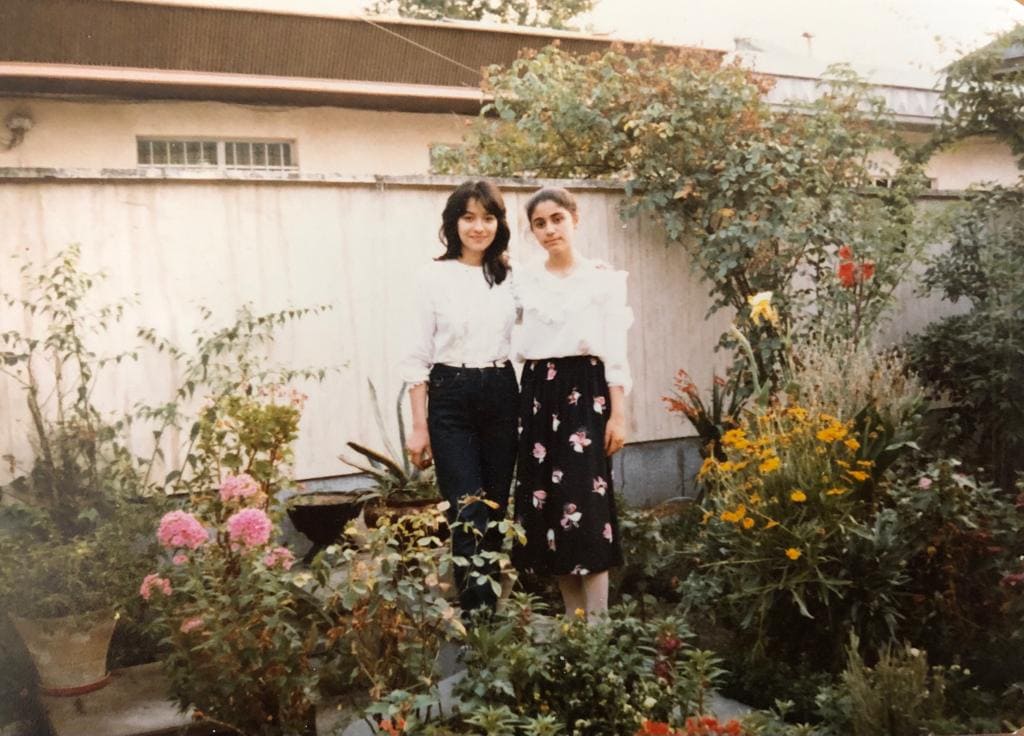
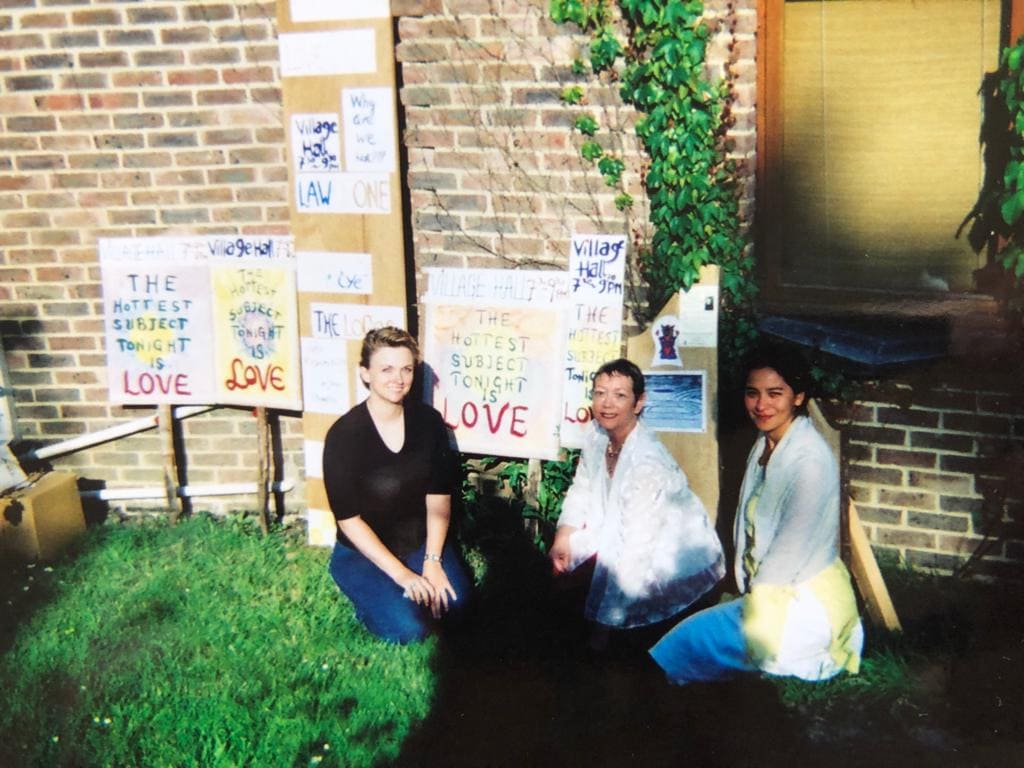
- On the left, Pupak’s mother and other family members before the war started in Iran. At the right, Pupak’s mun and others after the war had started. / 2. Pupak at the age of 16 with her friend Maryam in July 1984, just before she had to leave to Japan. / 3. Pupak with two dear friends in the United States.
I found Pupak’s approaches very rich, especially getting to know how it was for her to “keep seeking for true healing”. She highlights the importance of “paying attention” when it comes to individual and social change, as well as finding “a space to pause”.
After our chat, Pupak said she wanted to ask me something. I said yes. “Can I sew your pants?”, she asked.That was totally unexpected, but a lovely way to get an introduction on how to cover that massive hole that my yellow cord trousers had. We were never able to finish such a task because I had to leave before. However, thanks to Pupak I got stimulated to finish that patching the next time I was traveling on a train. That was a beautiful gift, and also all the learnings I got from the book she placed into my hands: Weavers of Wisdom: Women of the Twentieth Century (Anne Bancroft, 1990).
That same afternoon, of course, I attended the fire ritual. To my surprise, this time it was only us. Obviously, we dedicated it to explore the topic of inner decolonisation, which was very intimate and, again, revealing to me.
After that, she invited me to be the fire keeper on the week she was planning to be away. And so we did. The last time I saw her, she was driving away after lending me her basket and some logs.
On that, I can share that the fire was quite resilient for the heavy rain it was exposed to. We were 5 and it was the first time for the other 4 at the Earthlodge fire ritual. Our learning that night was how circles, rituals, sharing practices or singing together help us reconnect in a challenging world. We burnt what didn’t serve us and invited other beautiful things into our lives. I talked about how Pupak’s rewilding mission is for the landscape, soul and society. We chatted about fire and it’s power, trying to see its use as a rewilding practice as well, and we finished singing together.
As Pupak said at the end of our interview, may her story help everybody find “their own unique way to rewilding”, be it at the level of the soul, society or landscape.

Leave a Reply